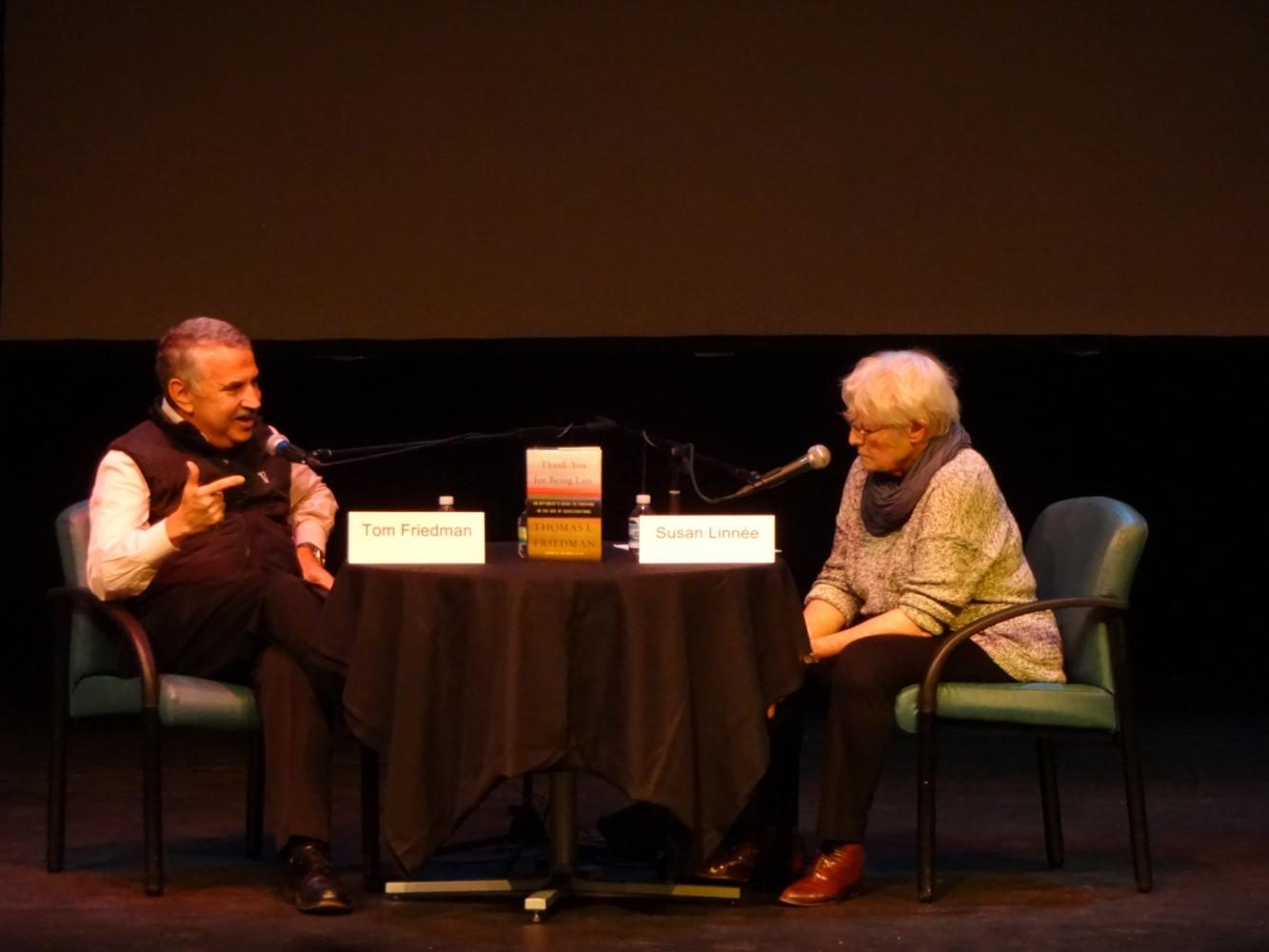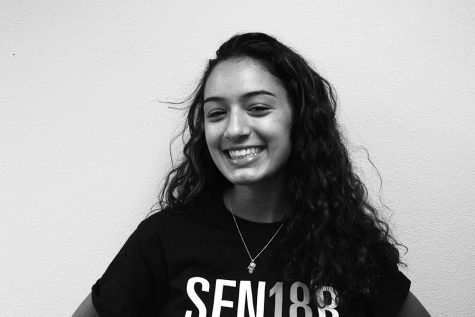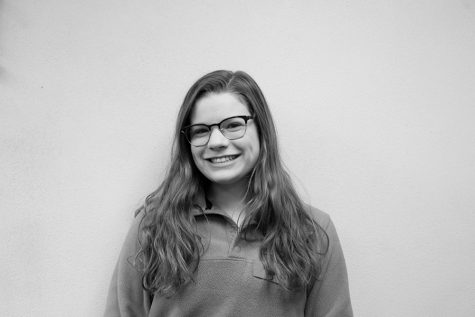Q & A: Thomas Friedman reflects on community experiences
New York Times columnist offers insight into Park diversity
Distinguished journalist Susan Linnee interviews Park alumnus and bestselling author Thomas Friedman at the JCC April 30. Proceeds from the event go to support the St. Louis Park Historical Society’s capital fund for a history center.
May 3, 2017
Pulitzer Prize-winning journalist and New York Times columnist Thomas Friedman spoke at a charity event raising funds to build a permanent history center in St. Louis Park April 30. After the event, Echo staffers interviewed Friedman regarding his connections to Park as a distinguished alumnus.
Q: How did growing up in St. Louis Park influence your worldview? Does it continue to make a big impact?
A: I grew up in a real community, and then I went to the Middle East and saw community break down. I saw people send their kids only to their own religious schools, their own factional schools. So when you grow up in a place that’s not perfect, but where it kind of works, it makes you realize what is possible and it makes you appreciate when you’re in places that don’t work.
Q: During your trips home to Park, what changes did you notice?
A: Well it’s obviously become a much more diverse community. Back in my day, diversity was all Judeo-Christians, so it was basically just religious diversity. And now it’s much more diverse racially and even more diverse religiously — so it’s a much more pluralist society.
Q: You talked a lot about the diversity and pluralism in St. Louis Park, but we still struggle with diversity, as do many communities. How would you address this?
A: The right word is struggle. If you’re struggling with it, you’re at least conscious of it and you’re working on it. I talk in (“Thank You For Being Late”) about (how) people often ask me “are you an optimist or a pessimist.” And I say I’m quoting a friend of mine, Amory Lovins, who said “I’m actually neither, because they’re just two different forms of fatalism.” Everything will be great, everything will be awesome. Amory says “I believe in applied hope.” So if you’re struggling with things, if you’re applying hope, you’re on the right path. That doesn’t mean you should just say “oh, we’re trying.” No — you want to make sure you’re really applying hope and that has obligations to you, has obligations to the people you’re trying to help too. I would really be worried if you told me, well this is the case but nobody cares. Then I’d say there’s a problem. But if people are aware of it and working on it, that’s a healthy thing.
Q: Why did you decide to write about St. Louis Park in this most recent book — ‘why now’?
A: I really, emotionally just wanted to come home because all of the other things I’ve been working on kind of blew up. And the other is, I was actually writing about community, why community, I was explaining that government moves at the speed of trust, federal government too slow, state government slow, local community faster, so that means government has to come back to community. And so I thought I would just use as a community the one I knew, the one I grew up in.





